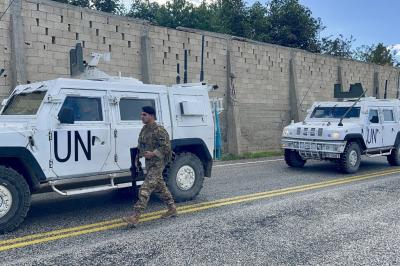Turkey’s recent announcement of suspending trade with Israel, banning Israeli ships from its ports, and closing its airspace to Israeli planes came as a surprise to many. But the move is not new. Ankara had already taken similar steps months ago, raising questions about why it chose this moment to re-announce them.
On the surface, the statement—delivered by Foreign Minister Hakan Fidan during an emergency session of parliament convened by opposition parties to discuss the war in Gaza—was as much for domestic consumption as it was for the outside world. Domestically, President Recep Tayyip Erdoğan’s government sought to counter its critics by showcasing measures already imposed on Israel, including the suspension of direct flights and the cutting of nearly $9.5 billion worth of trade back in May of last year. Since then, air links between the two countries have been limited to transit through Amman, Larnaca, Athens, or other hubs.
Externally, the announcement reflects Ankara’s growing sense of threat from Israel’s expanding footprint in southern Syria. Turkey sees this as a direct challenge to its national security. What was once a rival partner in the region’s delicate balance of power has now morphed into a cross-border danger that could undermine the territorial integrity of Middle Eastern states and even Turkey’s own multi-ethnic, multi-sectarian cohesion. At best, Ankara fears, Israel’s advance could hem Turkey in with a belt of hostile zones, undercutting its ambitions of projecting influence not only across the Middle East but also into Asia and Africa.
The risk goes further. A reconfigured Syria could open the door to Kurdish enclaves in the east, Alawite dominance in the west, and Druze footholds in the south—scenarios Turkey views as long-term threats to its stability. While Washington has yet to sanction such dramatic shifts, the erosion of state control on the ground could force the U.S. to accept new realities, as seen with Israel’s latest assertion of dominance in southern Syria.
Against this backdrop, Ankara is trying to impose a deterrence equation against Benjamin Netanyahu’s government, betting—as many do—that Netanyahu and his allies will not survive the next Israeli election. But this balance is precarious: deterrence without war.
Ankara’s Expanding Reach in Syria
Turkey today is more than a stakeholder in Syria; it is deeply enmeshed in the country’s political, military, security, and even economic affairs. Israelis, for their part, view Turkey’s identity with suspicion: a European power, a heavyweight in the Middle East, a Mediterranean maritime hub, and a Sunni state with Muslim Brotherhood roots and Central Asian links.
Turkey has left a military imprint across northern Syria through bases and operations near Israeli areas of interest, while backing Hamas politically and providing it with safe haven. This stands in contrast to Israel’s support for Kurdish forces in Syria—groups Turkey sees as existential threats aligned with separatist movements inside its own borders.
In recent months, Ankara and Damascus have even bolstered their military cooperation. A new memorandum of understanding has created a channel between Syria’s Interior Ministry and Ankara to preempt internal instability. Turkey has also committed to modernizing Syrian forces through training, logistics, and counterterrorism assistance. For Israel, this is alarming, especially in areas like Quneitra and Sweida, where Turkey is helping the Syrian government recruit loyalists and monitor Israeli projects.
With its growing influence, Ankara is not only cementing Assad’s rule but also curbing any Kurdish or Druze secessionist bids and blocking Israeli expansion. Turkey has become powerful enough in Syria to even grant Moscow space to act—something it once resisted. That, unsurprisingly, unsettles Washington.
Netanyahu, fully aware of this new map of power, has escalated strikes on Syrian positions, leaving the army in tatters. Yet Ankara largely looks the other way, unwilling to be dragged into a direct clash with Israel, a NATO member’s adversary but a formidable and unpredictable foe. For its part, Israel also avoids a head-on confrontation with Turkey, though since October 7, its moves have become more aggressive and potentially more destabilizing.
Deterrence With Limits
In this emerging contest, Netanyahu acts as the self-styled leader of a “Greater Israel,” while Erdoğan pushes his vision of a “New Turkey” reclaiming its historic stature. Since October 7, Israel has shown less regard for borders in pursuit of its regional agenda, even dictating policies in Syria to Washington itself.
Still, escalation is unlikely to spiral out of control. Political realism, geography, military calculations, and above all, the shared strategic partnership with the United States remain powerful brakes. Add to that the looming challenge of Iran for Israel and for the region at large, and both Ankara and Tel Aviv appear bound—for now—to keep their confrontation below the threshold of war.
Please post your comments on:
[email protected]
 Politics
Politics












